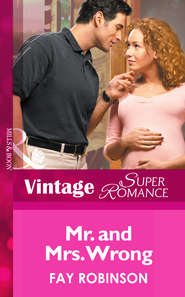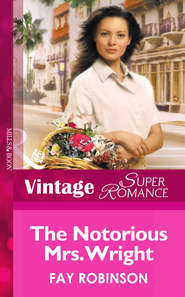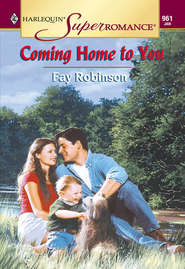По всем вопросам обращайтесь на: info@litportal.ru
(©) 2003-2024.
✖
Christmas On Snowbird Mountain
Автор
Год написания книги
2018
Настройки чтения
Размер шрифта
Высота строк
Поля
“Because she works hard to improve herself. She’s become an expert on the history of our people. She’s also one of the founders of a national project to make sure every child has the opportunity to learn his or her native language.”
“That’s ambitious.”
“But important. Fewer than 150 native languages in the U.S. have survived out of several thousand, and we’ve already lost a major dialect of Cherokee called Elati. She’s determined not to let that happen again.”
“I admire her for preserving your heritage.”
“I do, too. Because of her, I know who my ancestors are. That’s important to me, to my understanding of who I am.”
“What about your father? Is he Cherokee?”
“Yes. His great-great-great-grandparents hid out in these mountains and eluded the soldiers who came in 1838 to relocate them. Their son was born later that year. They named him Numma hi tsune ga, Whitepath, after a chief of the same name from North Georgia who was a half-blood brother to Sequoyah. Chief Whitepath tried to warn against the government’s treachery. But he wasn’t successful at rousing the tribal elders to take a stand and was among those rounded up and marched west. Old and sick, he was one of the four thousand who died.”
“The Trail of Tears. I remember reading about it in my American History classes.”
“My family carries Chief Whitepath’s name in remembrance of what he tried to do. We adopted it around 1900 as a surname.”
“Does it mean anything?”
“To an Indian, everything has a meaning. The white path is the path of happiness in the Green Corn Dance ceremony our ancestors practiced. For a Cherokee of the old time to say he was white meant he was taking the path of happiness, of peace.”
“So where does Ryan come from? That’s obviously not Cherokee.”
“Ryan MacDougal was a childhood friend of my mother’s who died in a fall. She named me for him. These mountains are full of families with Scottish and Irish heritage. You’ll notice the cross-influences in the languages. Our legends are similar, too. Ever heard of the Little People from Irish folktales?”
“Of course. They’re leprechauns. When I was little, I believed they lived in our den.”
“The Cherokee also know of the Little People, the good and bad spirits who inhabit the forest. The Little People are said to take things or move them. Sometimes they’ll leave you a gift, and you’re expected to reciprocate. My father used to swear they were constantly moving his tools.”
“What does your father do?”
“He used to run a shop here on the property with my grandfather and uncle. They made furniture. For the past fifteen years, he’s lived in a little town called Lineville and worked for a trucking company. He and my mother are divorced.”
“Sorry,” she said with a grimace. “I assumed your dad was at work. Am I being too nosy? I find your family fascinating.”
“No, no problem. The breakup was economic more than anything. The business wasn’t profitable anymore, so after Granddaddy died, my dad wanted to move to the city. My mother didn’t. At first he was pretty good about coming home on weekends and holidays, and they tried to keep the marriage going. But over time the visits got more infrequent and then stopped. I haven’t seen him in three or four years.”
“That has to be tough.”
“Everyone took it hard when he moved out, especially my brother Joe who was only seven and particularly close to him.”
“How old were you?”
“Fifteen. I’m the oldest.”
“So that made you the man of the house?”
He shrugged as if it were no big deal, but Susannah didn’t believe that. Fifteen—thrust into adulthood… The situation must’ve been difficult for him.
He walked down the steps and motioned for her to follow.
“Get your sketchbook and I’ll look at it,” he said, striding over to her truck.
“You mean you might reconsider teaching me?”
“No, but if you want my opinion on your work, I’ll give it.”
WITH HER SKETCHBOOK under her arm, Susannah fell in next to him, trying to keep up with his long strides as they made their way down the driveway. She thought he’d head to a cabin on the right, but instead he turned left toward a long barn.
“My studio’s over there,” he said.
The air was crisp and smelled of sawdust, and in the fading light she could see piles of the stuff rotting behind the building. Snow had begun to fall again.
“This used to be my dad’s workshop,” Ryan explained. The long structure had double barn doors in the middle and a regular door to the left, with an opening below for a pet to go in and out. He opened the smaller door and they went inside. “I needed a large space nearby so I closed in the sides, added plumbing and a floor and made a workshop and apartment.”
Susannah had expected something rustic and dark, considering the exterior, but when he flipped on the lights, she couldn’t hold back her surprise. The interior was spacious and airy, as modern as any dwelling in a big city.
“Wow! This is wonderful.”
“It works well for the business and for me personally. I’m close enough to take care of my mother and grandmother and for them to help me with Nia, but I have my own space and privacy. At least, I feel the illusion of privacy.”
The main floor was his workshop. Long plywood tables made an L along one side and across the back, holding projects in various states of completion. Sketches and vibrant paintings covered the walls. The stairs on the left led to a loft where he lived.
He showed her around the main floor. Shelves under the tables held glass jars filled with tiny tiles of every conceivable color and hue. Larger tiles were stacked in bins along the right wall.
“Do you use commercial tiles or make your own?” she asked, as they walked through the kiln room.
“Both. It depends on the project and what I’m trying to accomplish. If I can’t get the color, texture or durability I’m looking for, I’ll make my own. A good part of my business is restoration, which involves hand-making or painting tiles to match older or antique ones. I often have to experiment with pigments, glazes, bisques and firing techniques.”
“You do all the work here?”
“Mostly. I create manageable sections of tile by attaching it to a special backing I designed myself. When the whole piece is done, I ship, reconstruct and install. I prefer to work from scratch on-site, but that’s not practical because of the time and expense involved.”
They came back to the main room and he showed her his office, in the corner area by the stairs. Papers were strewn haphazardly on his desk, as well as the light table. Everywhere, actually. The whole office needed a good tidying.
A white Persian cat lay stretched out on top of a tall bookcase, and it watched Susannah with eyes like gold jewels, expression haughty.
“Hello,” Susannah called up. “What’s your name?”
“That’s Abigail,” Ryan supplied. “I thought it would be good for Nia to learn responsibility for taking care of a living thing, but I have a suspicion Abigail owns us and we’re her pets rather than the other way around.”
“Cats can be a bit independent. She’s so beautiful.”
“She knows it, too.”
He took Susannah’s jacket and flung it over a chair, then shed his own. Grabbing a rubber band out of his desk drawer, he drew his dark hair off his face, into a ponytail.
“Do you wear your hair long because you’re Native American?” Susannah asked.








